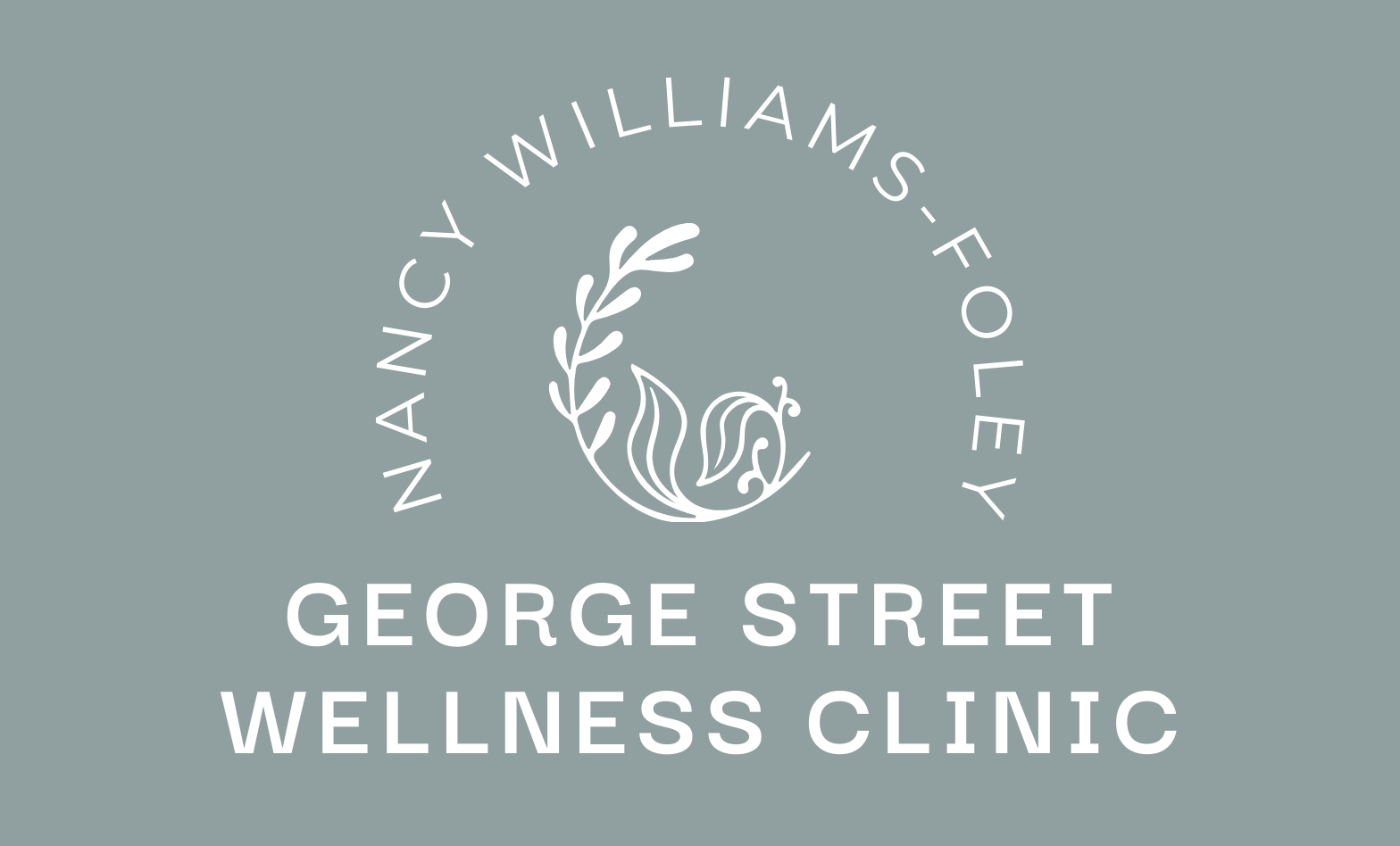Signs You Might Be Burned Out — and How to Gently Rebuild
Burnout doesn’t always look the way you’d expect. It’s not just exhaustion or overwhelm - sometimes it’s subtle.
A quiet dullness in your days, a creeping sense of detachment, or a body that feels like it’s running on empty.
At George Street Wellness Clinic, I support clients every day who are not quite sure what’s wrong - they just know something feels off. And more often than not, what they’re experiencing is burnout.
In this blog, we’re exploring what burnout really is, the lesser-known signs to look out for, and how you can begin to gently rebuild your energy, mindset and sense of wellbeing.
What Is Burnout?
Burnout is more than just stress. It’s a state of emotional, physical, and mental exhaustion caused by prolonged or repeated stress - often linked to work, caregiving or constant pressure to perform.
It affects your nervous system, your hormones, your immune system and your emotional health. Left unaddressed, it can lead to long-term health issues including anxiety, digestive problems, hormonal imbalance, and even chronic fatigue.
And yet, burnout is often dismissed. Many people push through it, believing they just need to ‘try harder’, which only deepens the cycle.
7 Subtle Signs You Might Be Burned Out
Some signs of burnout are obvious - constant tiredness, irritability, or tearfulness. But others are much easier to miss. Here are some of the more gentle but persistent signs that your body and mind might be calling for rest:
1.You wake up tired — no matter how much you sleep
Even with a full night’s rest, you feel foggy, heavy, or drained. This is often a sign your nervous system is dysregulated and stuck in ‘survival mode.’
2.You’re more emotionally reactive than usual
Little things might leave you feeling snappy, overwhelmed or teary. Burnout depletes your emotional reserves, making it harder to cope with even mild stress.
3.You feel disconnected — from work, relationships, or yourself
There’s a sense of going through the motions. You might find it hard to feel excited or motivated, even about things you used to enjoy.
4.Your body feels tense or heavy
Burnout can show up physically as tension in your shoulders, jaw, chest or stomach. You may also notice frequent headaches, digestive issues or a weakened immune system.
5.You find it hard to concentrate or make decisions
Cognitive fog is a common sign of burnout. You might find it difficult to focus, feel indecisive, or forget simple things.
6.You’ve lost interest in taking care of yourself
When you’re burned out, even small self-care tasks — cooking, stretching, getting outside — can feel like too much.
7.You feel like you're always behind
No matter how much you do, it feels like it’s never enough. There's a constant hum of pressure and guilt, even on your ‘days off’.
If you recognise yourself in any of these signs, you’re not alone and you’re not failing. Your body is doing its best to protect you. The good news? There are ways to gently begin the process of recovery.
How to Gently Rebuild After Burnout
Burnout recovery isn’t about forcing yourself to bounce back. It’s about slowing down, tuning in, and giving your body and mind what they really need. Here are some gentle ways to begin.
1.Acknowledge it — without judgment
The first step is recognising you’re burned out, not just tired or lazy. Give yourself permission to feel what you’re feeling, without guilt.
2.Create micro-moments of rest
Burnout can make deep rest feel impossible. Start small. Sip a cup of tea slowly. Take three deep breaths. Sit in silence for five minutes. These little pauses help regulate your nervous system.
3.Nourish your body
Focus on simple, grounding meals that support your energy: warm soups, root vegetables, slow-cooked stews, herbal teas. Avoid too much caffeine or sugar, which can spike and crash your energy.
4.Try gentle, supportive therapies
At George Street Wellness Clinic, I offer a range of therapies that can help support burnout recovery:
- Acupuncture to calm the nervous system and restore energy flow.
- Counselling or EFT (Emotional Freedom Technique) to explore emotional overwhelm in a safe, supportive way.
- Reflexology to bring balance to your body and mind.
Even one session of a nurturing therapy can create space for rest and reconnection.
5.Lower your expectations
One of the hardest parts of burnout is letting go of the need to keep achieving. But true healing starts when you allow yourself to do less. Rest is productive, especially when you’ve been running on empty.
6.Connect with others
Isolation can deepen burnout. Gently reach out to someone you trust. If that feels too much, simply being in the same space as others, like a retreat, class, or community group can be grounding.
7.Listen to your body
Burnout recovery isn’t one-size-fits-all. Learn to notice your own rhythms. What time of day do you feel most depleted? What restores you? What drains you? Your body often knows what your mind has been ignoring.
You Don’t Have to Navigate This Alone
Burnout recovery is a slow, tender process. It takes time, kindness, and support.
If you’re feeling the signs of burnout and want to explore gentle, holistic support, thenplease get in touch here. Whether you’d like to tryacupuncture, counselling, or EFT every session is designed to meet you exactly where you are.












